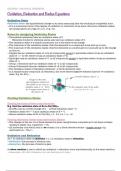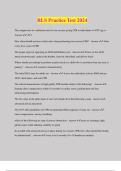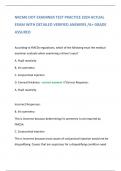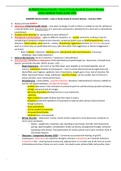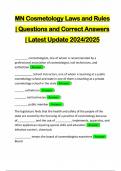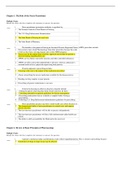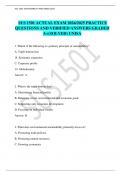Summary
Summary notes for AQA A-Level Chemistry Unit 3.1.7 - Oxidation, reduction and redox equations
Summary notes for AQA A-Level Chemistry Unit 3.1.7 - Oxidation, reduction and redox equations by an Imperial College London MSci Chemistry graduate. Notes divided into the following sections: Oxidation State, Oxidation and Reduction
[Show more]
